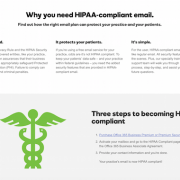Office 365 Data Security
When it comes to storing data, the cloud is becoming one of the most popular choices in the business world today. Storing data remotely has a lot of advantages for both home and professional users, and as a result Office 365 Data security is essential.
Yet, with that, comes the risk of data loss. With more people accessing important data from any location with any device, you are always at a risk. Users of Office 365 are no exception to this risk either.
When you talk about security risks, the first thing that comes to your mind is hacking. However, a hacker isn’t the primary cause of data loss.
A 2013 study by Aberdeen found that 47% of cloud data loss was because of user mistakes, not outside threats. Is Office 365 data secure? Let’s take a look at the risks associated with using Office 365, and how to reduce data loss.
It’s Actually Just You Most of the Times
The research also suggests that 32% of businesses had faced SaaS data loss in one form or another. The most surprising finding of this research was the real culprit of this data loss. It’s usually the users, and not a hacker.
According to the same report, over 70% of SaaS data loss is accidental. Mistakenly deleted files take up 47% of that data loss. The remaining 24% is composed of accidentally overwritten files.
Data Recovery Is Actually a Myth
A common misconception is that Microsoft backs up all Office 365 data so it can recover lost data. That isn’t true. Microsoft only secures their Office 365 data centers from total failures. They don’t protect your data against accidental losses because of your own mistakes.
To put it in simple words, if you lose a file by your own negligence or by accident, you may never be able to get it back. As Microsoft says it itself that, “With Office 365, it’s your data. You own it. You control it. And it is yours to take with you if you decide to leave the service.”
So what can be done to avoid a loss of that nature? Here are some ideas.
Look for Third-Party Backup Solutions
Microsoft isn’t currently protecting users from accidental data loss, but there is a workaround. Office 365 data can easily be protected through third-party solutions. SaaS vendors now recommend third-party backup solutions as a rule to cut down data loss.
Cloud-to-cloud backup solutions can help keep data significantly safer. It’s also a lot easier to restore and retrieve data when needed this way. However, with so many solutions available, choosing the best fit isn’t that easy. The key is to find one that you can rely on.
Develop a Data Loss Prevention Policy
Enforce a “don’t delete until permitted” policy to prevent accidental data loss. Such policies help minimize data loss and employees develop a habit of backing things up on their own.
You can also educate your employees about using Office 365 effectively. Training them to think twice before deleting an item is a good idea too. This policy would help keep critical data a lot safer. One good news is that Office 365 doesn’t empty the Deleted Items folder automatically.
This means that regular backups can protect accidentally deleted files from being permanently lost.
Be Proactive and Stay Prepared
Forrester Research says that data breaches are inevitable and we should prepare for them. The fastest growing, “shadow IT” activity is tearing down firewalls and protective measures. That leaves businesses vulnerable to data loss and information theft.
Educating your employees about data loss is key to keeping your information safe. Train them to cut down user errors that result in data loss and adopt a more cautious stance. This way, they’ll think twice before deleting something by habit, and will keep backups.
However, data loss is inevitable and it will happen. Data loss is a major risk with any cloud application. It could be caused by any number of reasons such as accidental deletion or unexpected sync errors. Your data is your responsibility and backing it up at more than one place is the safest way to go!
How are you backing up your cloud data right now? What measures are you taking to safeguard against accidental data loss? Read more about how to backup office 365 and prevent data loss HERE.








